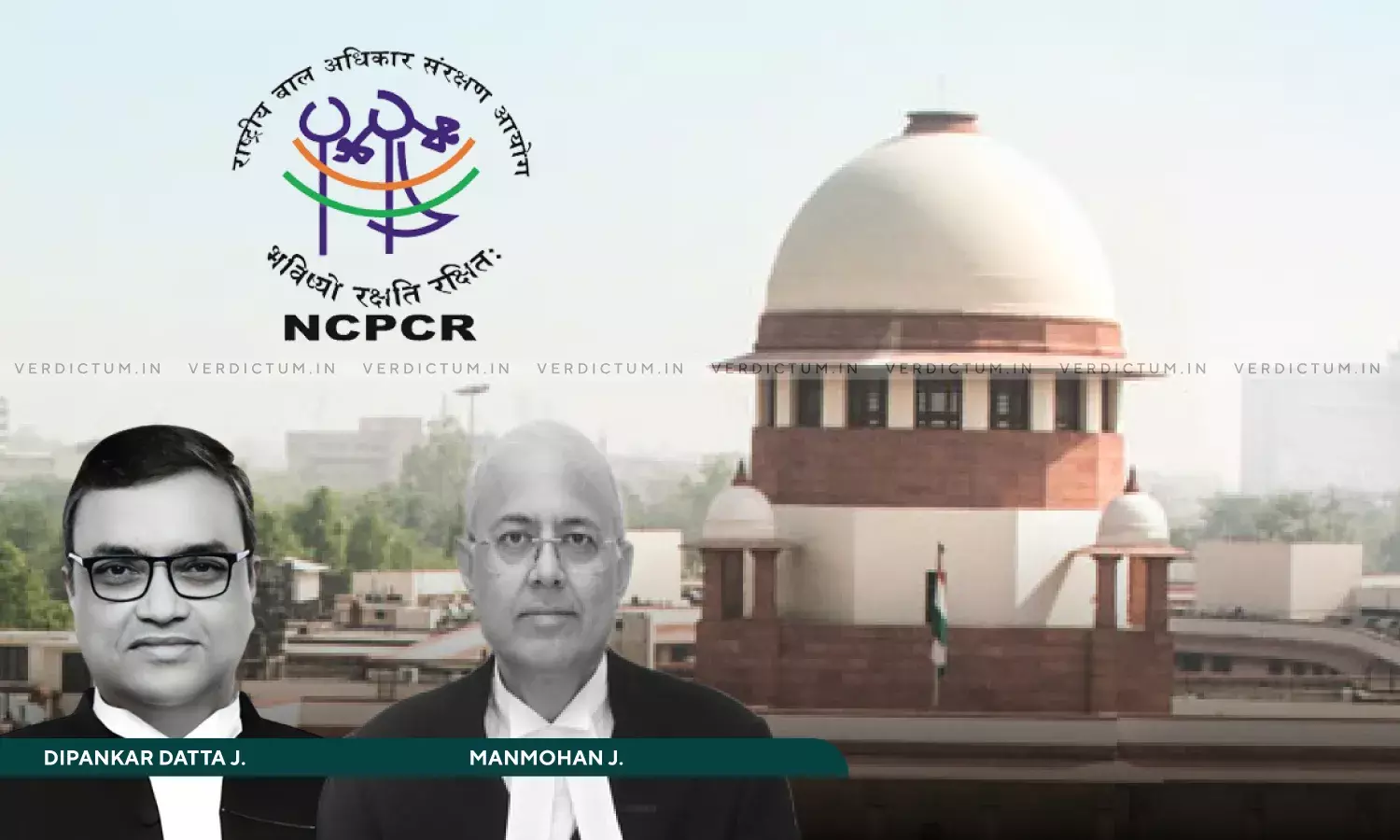Apex Court Holds That NCPCR Can File Complaints Under MP Freedom Of Religion Act, Overturns Madhya Pradesh HC’s Finding In Religious Conversion Case
The Supreme Court affirmed that the NCPCR Chairperson’s actions against the accused were legally justified and within the commission’s statutory mandate to protect child rights.

The Supreme Court today ruled that the National Commission for Protection of Child Rights (NCPCR) has the authority to file complaints in cases of religious conversion under the Madhya Pradesh Freedom of Religion Act, 2021.
The Bench of Justice Dipankar Datta and Justice Manmohan overturned the Madhya Pradesh High Court’s finding that had effectively curtailed NCPCR’s powers in such matters.
The Court made the observation while hearing a Special Leave Petition filed by NCPCR against the Madhya Pradesh High Court’s decision granting anticipatory bail to the accused in the Asha Kiran Home case in Katni, Madhya Pradesh. The High Court had ruled that NCPCR was not a “competent complainant” under the Act, which prompted the statutory child rights body to approach the Apex Court.
The Supreme Court has not reversed the order granting anticipatory bail since the NCPCR's challenge was limited to the finding against it and the Court had clarified that it is issuing notice on that limited issue.
After hearing arguments from Senior Advocate Swarupama Chaturvedi, representing NCPCR, the Court held that the Madhya Pradesh High Court’s findings were erroneous.
The Court affirmed that the NCPCR Chairperson’s actions against the accused were legally justified and within the commission’s statutory mandate to protect child rights.
Previous Proceeding
It is to be noted that on August 14, 2023, the Apex Court had issued notice in the SLP. "Since the observations contained in paragraph 8 of the impugned order of the High Court dated 19 June 2023 would require further deliberation having regard to the interplay of the statutory provisions, notice is issued to the respondents. Notice shall be served on the respondents through the SHO of the police station concerned," the Court had directed.
About the SLP
The Special Leave Petition (SLP) was filed under Article 136 of the Constitution against the High Court's judgment dated June 19, 2023, granting anticipatory bail to the accused.
The case pertains to FIR No. 461/2023, registered at Madhav Nagar Police Station, District Katni, under Section 75 of the Juvenile Justice (Care and Protection of Children) Act, 2015, and Sections 3 and 5 of the Madhya Pradesh Freedom of Religion Act, 2021 in the case of Asha Kiran Home in Katni, Madhya Pradesh. The High Court had granted anticipatory bail to the respondents, holding that the complainant, NCPCR, was not a “competent complainant” under the MP Freedom of Religion Act.
“In the present case, complaint has been lodged by an individual who conducted inspection. No complaint has been made by person converted or person aggrieved or against whom attempt is made for conversion or by their relatives or blood relatives. In absence of such written complaint, police does not have any jurisdiction to inquire or investigate into offence committed under Section 3 of Act of 2021,” the High Court had observed.
In its petition, NCPCR, a statutory body under the Ministry of Women & Child Development, argued that the High Court failed to consider its mandated role in monitoring and protecting child rights under the Commission for Protection of Child Rights Act, 2005, and the Juvenile Justice Act, 2015. It contended that the High Court’s interpretation of the MP Freedom of Religion Act was overly technical and disregarded the legislative intent behind the statute.
The petition stressed that granting relief to the accused on procedural grounds ignored the gravity of the allegations, particularly those involving minors. It highlighted that the minor victims had provided statements to the police on May 29, 2023, corroborating the charges under the Juvenile Justice Act and the MP Freedom of Religion Act.
NCPCR further asserted that, as a statutory body, it holds the authority to take suo moto action against individuals or organizations violating child rights, including filing complaints and approaching law enforcement. It contended that the High Court erred in dismissing its role as a complainant in the case.
Cause Title: National Commission for Protection of Child Rights (NCPCR) v. Jerald Alameda [SLP(Crl) No. 9502/2023; Diary No. 31065/2023]

